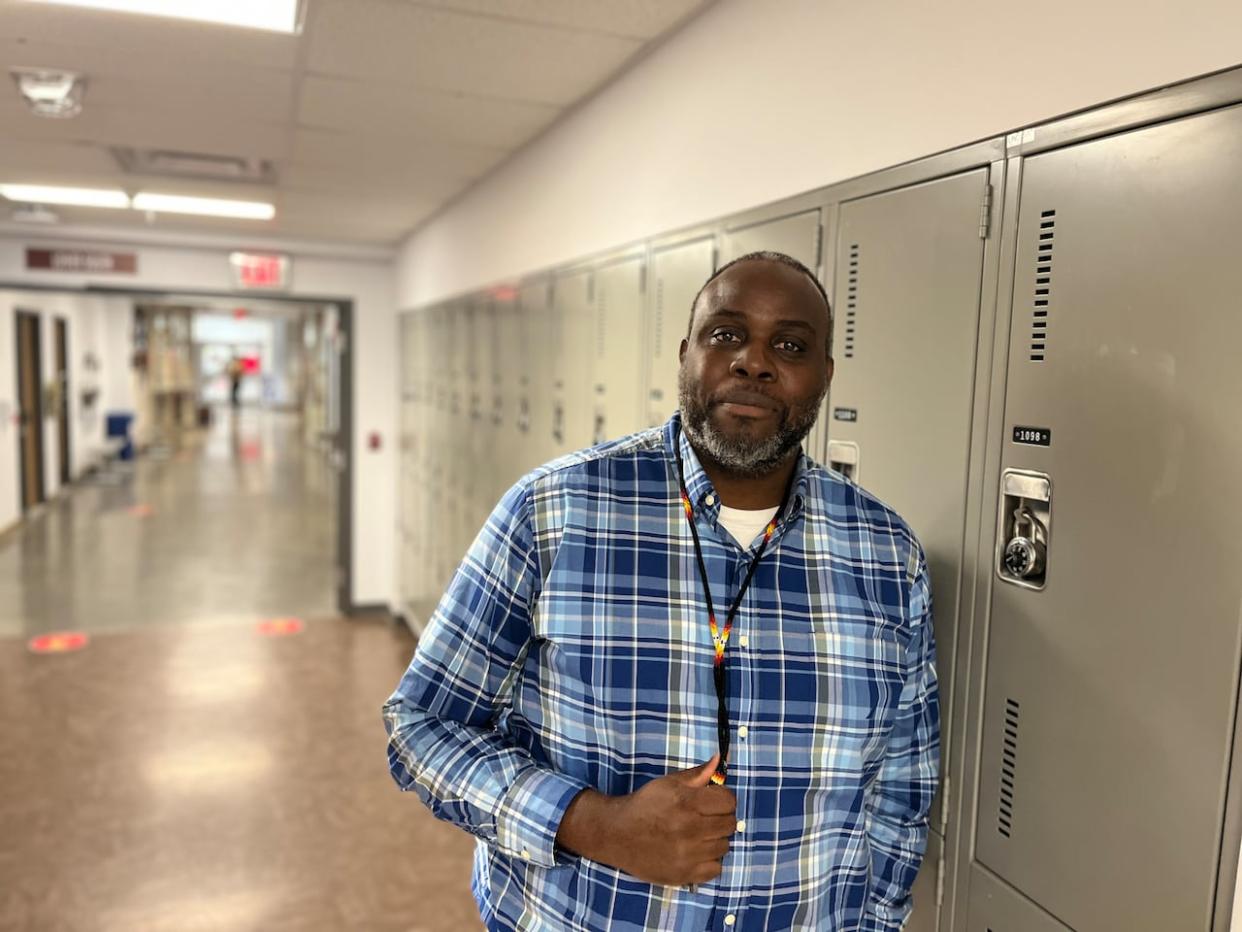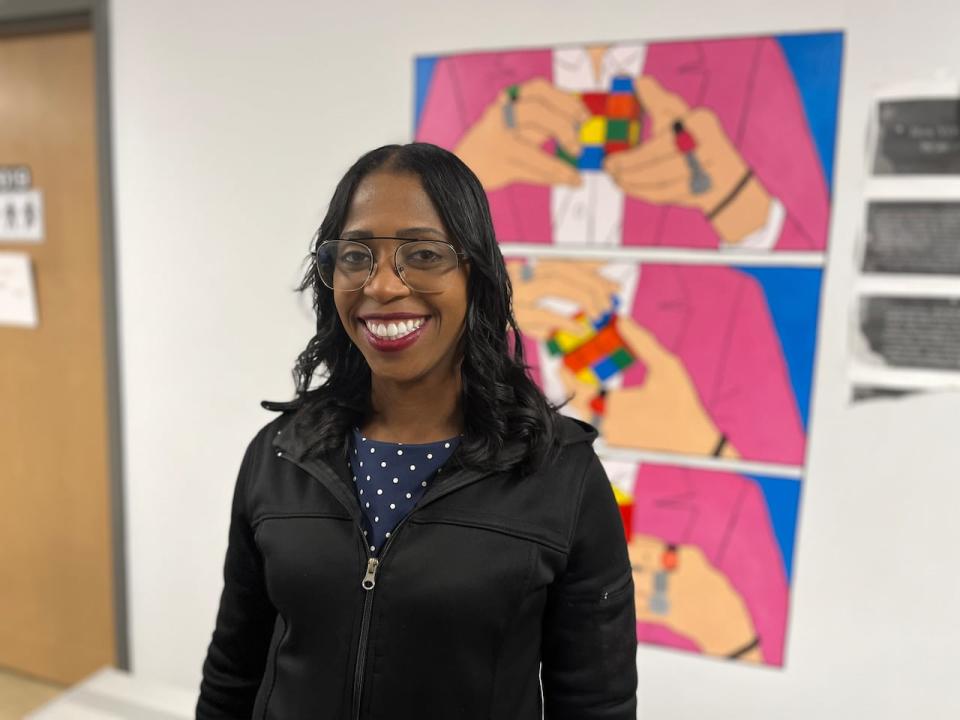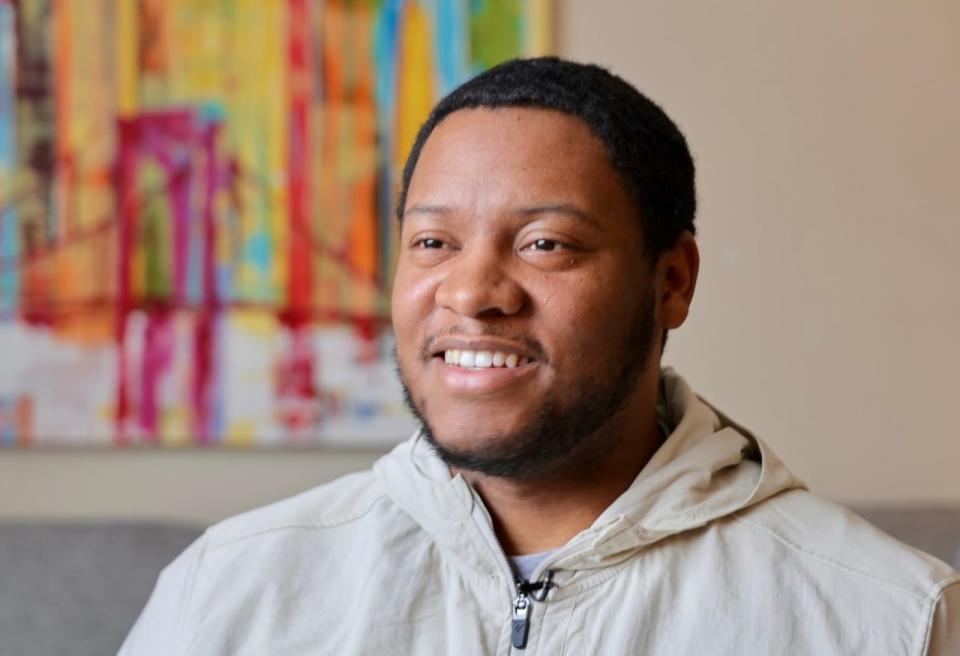Seeking to increase diversity in Nova Scotia's education system

It wasn't until he was in Grade 8 that Tyler Simmons saw someone standing at the front of the classroom who looked like him.
He didn't give it a lot of thought at the time, but looking back on it now the native of the historic Black community of North Preston, N.S., said he recognizes the importance representation can make in the lives of students.
"For a long time, being a teacher wasn't on my mind and it wasn't until later that I figured out that this is something that is a possibility for me," the Grade 3/4 teacher at St. Joseph's-Alexander McKay Elementary said in a recent interview.
Simmons has family connections to educators, but his light bulb moment came a few years ago when he realized that some of the key role models in his life were Black men who were both teachers and coaches. That inspired him to pursue education as a career, and last year he graduated from Mount Saint Vincent University's teaching program.
"It's the perfect career for me," he said.
'They want to see themselves'
As regional centres for education across the province seek to diversify their staff, they're trying to figure out how to recruit more teachers from Black, Indigenous and other racialized communities, while also trying to help students currently in the system see education as a potential future career.
The Tri-County Regional Centre for Education in southwest Nova Scotia, for example, has job postings aimed at people from diverse backgrounds who are in education programs and will graduate ahead of the next school year.
It's not possible to gauge how much work there is to do on staff diversity because none of the regional centres have statistics on the matter. In an email on behalf of all of them, a spokesperson for the Halifax Regional Centre for Education said data is being gathered this winter.
David Phillip, the co-ordinator of African Nova Scotian education for Tri-County, and Brandy Jarvis-Nickerson, the centre's Mi'kmaw education co-ordinator, said representation is "the No. 1 thing" that comes up when they meet with students in middle and high school to discuss how to the school environment could be improved.
"They want to see themselves reflected at the front of the classroom," Phillip said in a recent interview. "They want to see themselves reflected in the curriculum and the source materials that are used in the schools."

Brandy Jarvis-Nickerson is the Mi'kmaw education co-ordinator at the Tri-County Regional Centre for Education. (Michael Gorman/CBC)
Students are looking for people they can trust and relate to, said Jarvis-Nickerson. That can extend beyond race and culture in buildings without much diversity among staff, she said.
"It's somebody that takes an interest in terms of who they are as individuals, who they are as family, who they are outside of the school and not just as a student who needs to be taught."
Jarvis-Nickerson and Phillip both turn to the broader community to help bring resources into schools, such as guest speakers, as well as sometimes bringing students to communities for cultural events and activities.
The two also work with colleagues to help assess teaching practices to ensure they're inclusive, including the materials being used. Phillip said it can be easier to get students to engage when they see themselves in the material and see their history and culture represented in what's being studied.
"I think that's what we're currently trying to do, is trying to draw attention to some of the things that are lacking in the system and some of the things that the students feel that they need in order to be successful," he said.

In his first year working as an elementary school teacher, Tyler Simmons says he can already see the effects of representation in the classroom. (Jeorge Sadi/CBC)
Student populations are a reflection of society and, as such, said Phillip, they're becoming more diverse. Education Department statistics as of September provide some insight into this, although reporting by students is voluntary.
Based on the number of people who self-identified, the percentage of students who identify as Indigenous ranges from 4.7 per cent (Conseil Scolaire Acadien Provincial) to 9.7 per cent (Tri-County). The percentage of students who identify as being of African descent ranges from 2.3 per cent (South Shore) to 10.9 per cent (Halifax).
The overall numbers are even higher when other cultural backgrounds are included. Phillip said it's also important that discussions about diversity include the 2SLGBTQ+ community and people with disabilities.
In his first year on the job, Simmons is already noticing the difference representation can make, as he hears students in his class say things like, "When I'm a teacher."
"It's quite amazing to see them change their mindsets to be like, 'I could be a teacher,' or decide to be whatever they want to be," he said.
"I'm like the first professional they see every single day and now they start to think that, 'I could be that professional person in my future.'"
For more stories about the experiences of Black Canadians — from anti-Black racism to success stories within the Black community — check out Being Black in Canada, a CBC project Black Canadians can be proud of. You can read more stories here.

(CBC)
MORE TOP STORIES


